
Tonic water isn’t just an essential ingredient in a gin and tonic. It’s also an interesting drink in its own right, one that has a sharp bitter taste that stands out. The bitter flavor comes from quinine, an ingredient that is thought to offer some benefits. So, what about the drink itself, is tonic water good for you?
There are a few things we need to talk about and think about here – starting with the quinine. This is what gives tonic water its flavor and could, theoretically, provide health benefits.
Then there are the other ingredients, which can include carbonated water, sugar or an alternative sweetener, and perhaps flavoring ingredients. Not surprisingly, each of these ingredients has its own implications for your body.
Is Tonic Water Good For Your Health?
- What Is Tonic Water?
- Is Quinine Safe?
- Health Benefits Of Tonic Water
- The Problems With Tonic Water
- Healthy Alternatives To Tonic Water
- Be Careful With Your Gin And Tonic
- Final Thoughts
What Is Tonic Water?
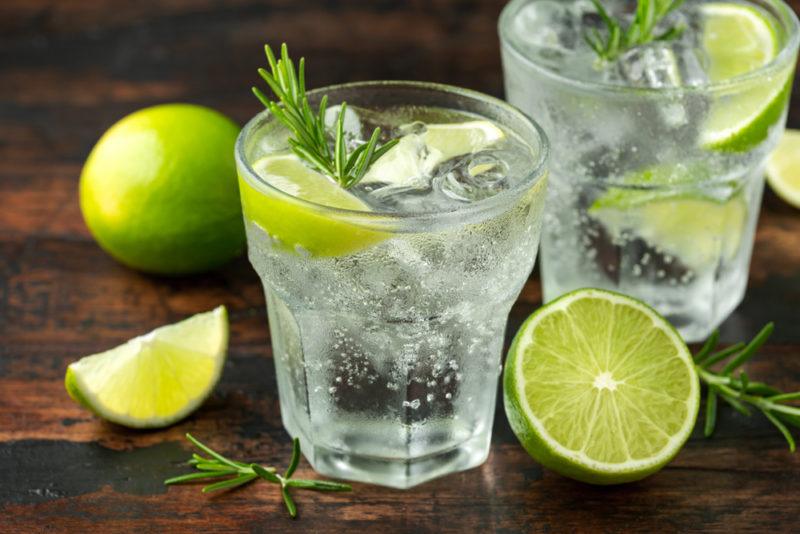
To begin with, let’s talk about the drink itself. Tonic water is made by adding quinine to carbonated water. Quinine is sourced from cinchona tree bark, a tree that is common in the Caribbean, Central America, South America, and some parts of Africa.
Quinine itself has an interesting history. It was originally used as a way to fight malaria and provided in the form of a pill. It was effective at doing so too – dramatically lowering death rates among Panama Canal workers.
These days, we’re drinking quinine for the flavor rather than health benefits. We’re not drinking a large amount of it either. In fact, the quinine concentration in tonic water can’t get above 83 parts per million.
Because quinine has such a strong bitter flavor, modern companies tend to add other ingredients to create a more balanced drink. Sugar is the most common addition.
Sometimes tonic water even contains as much sugar as other types of soda, like Sprite. That reinforces the idea that tonic water truly has little to do with health.
Is Quinine Safe?
Quinine doesn’t just give tonic water an interesting flavor. The quinine also provides potential health benefits and risks.
For one thing, large amounts of quinine can cause side effects. These are most common among people who take quinine as a medication for malaria.
Side effects can include vomiting, nausea, confusion, stomach cramps and, in rare cases, kidney damage, bleeding problems, and an abnormal heartbeat.
However, the amount of quinine in tonic water is considerably lower than you get in quinine pills. It takes roughly 2 liters of tonic water to give you the equivalent of a malaria pill.
Even if you did consume that much tonic water daily, you might not experience any side effects at all. And, if you did, they would pass soon enough. The fact that quinine is still used to treat malaria and that its use in tonic water is FDA approved suggests that the amount in tonic water is safe.
That said, if you have a medical condition, are taking medication, or are pregnant, you should talk to your doctor before taking quinine.
This is particularly true if you have any issues with your blood sugar levels because tonic water may have unexpected impacts. In particular, the quinine could cause a blood sugar drop, while the sugar increases blood sugar levels instead.
Health Benefits Of Tonic Water
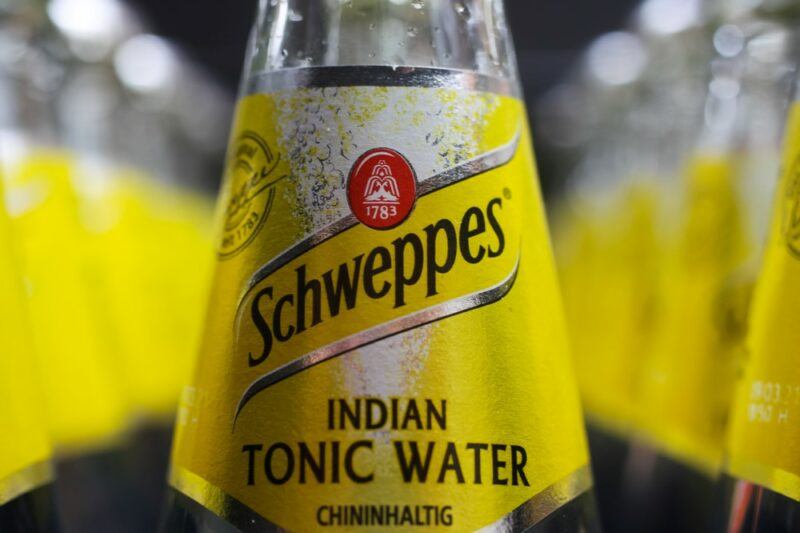
It’s A Source Of Water
Tonic water really only has one proven benefit – it’s a source of water. The name tonic water gives that idea away a little, as does the fact that carbonated water is the main ingredient.
Getting enough water is important for all kinds of reasons. Water helps our bodies to digest food well and keeps us regular, it also plays a role in getting nutrients to our cells, promoting weight loss, regulating body temperature, and has many other roles as well.
In contrast, being dehydrated can cause symptoms like being dizzy, constipated, lightheaded, or having a headache. Severe dehydration can also alter your blood pressure and heart rate. Because water is so important, untreated dehydration can be very serious indeed.
While most of us get enough water to avoid serious dehydration, it’s easy to be getting less water than you need. Tonic water seems like an easy way around the problem, as it has a more interesting flavor than regular water and should hydrate you just as well.
Might Help In Other Areas
There are some suggestions that tonic water could help in other ways too. For example, tonic water is sometimes used to reduce leg cramps at night, especially when circulatory problems are to blame.
However, there isn’t currently any evidence that tonic water actually makes a difference here. Drinking it at night could be counterproductive anyway, as tonic water contains a surprising amount of sugar, which could give you a sugar buzz when you’re trying to go to sleep.
Another idea is that tonic water can help with stress. There isn’t much evidence for this claim either (it’s not even clear where the idea comes from).
The Problems With Tonic Water
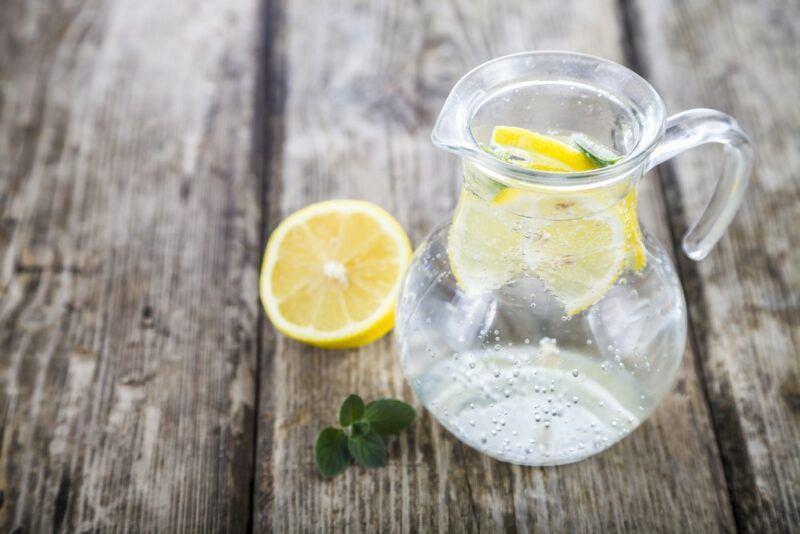
It Contains A Lot Of Sugar
The quinine makes tonic water sound like a health drink. Yet, in practice, tonic water isn’t that different than regular soda.
For example, a 12 fl. oz serving of Schweppes tonic water contains 33 grams of sugar. In contrast, the same amount of Coca Cola gives you 39 grams of sugar. While tonic water ends up being a little healthier than Coca Cola, the difference isn’t that much.
Besides, 33 grams of sugar per serving is excessive. Tonic water doesn’t offer much else either. There are barely any nutrients present, no protein, and no fiber. Just sugar, water, a tiny bit of quinine, and whatever other additives the company adds in.
Tonic Water Is Deceptive
Tonic water is mostly marketed like a soft drink, but the bitter flavor and the word tonic make many people think that it’s healthy (or, at least, healthier than regular soda).
While the sugar content is obvious if you ever check the back of the bottle, many people don’t do this. After all, tonic water doesn’t taste like it contains a lot of sugar.
There Are Often Additives And Sweeteners
Some tonic water brands use other ingredients as well. The most common is to use high fructose corn syrup rather than sugar. High fructose corn syrup, or HFCS, is cheap and easy for companies to use, but it could be even worse than regular sugar for your body.
Some companies get around the sugar by using natural or artificial sweeteners instead. However, these have their own issues. Even stevia, which is considered a natural sweetener, has been linked to a surprising number of potential issues.
There are some less processed brands out there, including some that keep the sugar content down as low as possible. You’ll need to shop around to find these. But, if you’re drinking tonic water regularly, it’s worth taking the time to find a reliable brand.
The Sodium Content May Be High
Tonic water can contain a surprising amount of sodium too, sometimes around 45 to 55 mg per serving. Diet tonic water may be even higher in sodium. Some brands manage to include more than 100 mg of sodium in a serving.
Sodium is an electrolyte, so it is important for keeping your body functioning well.
However, most of us get more sodium than we need. The sodium in tonic water could be a particular problem because you can’t really taste it.
Thankfully, the amount does vary between brands. Try shopping around a little. You might be able to find a low sodium brand or two.
Healthy Alternatives To Tonic Water
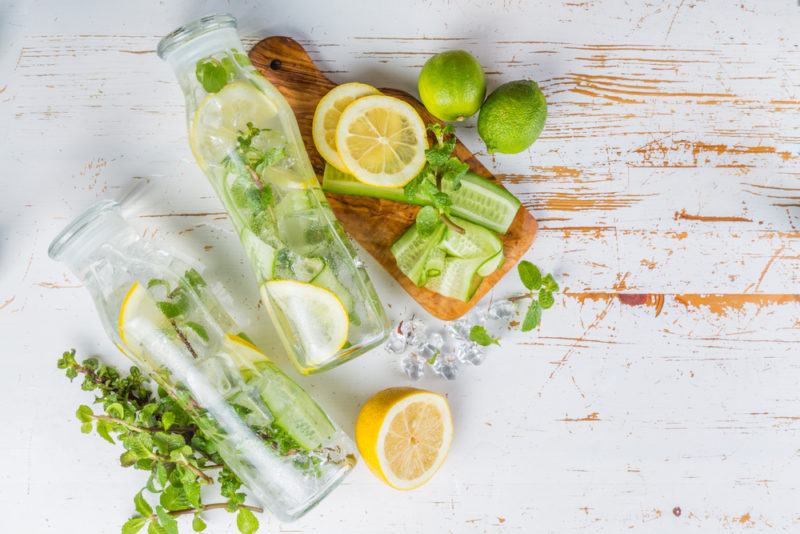
If you’re using tonic water every so often as a mixer for a gin and tonic or some other type of cocktail, then you might not need to change anything. Just be aware that tonic water isn’t healthier than using a different type of soda as a mixer.
However, if you’re hoping to stay hydrated, tonic water isn’t the greatest choice. Plain water is the single healthiest alternative, as you’re getting the hydration you need with nothing extra.
Some people struggle with plain water, finding that it is a bit boring and lacks flavor. If that’s the case, you can make it more interesting by adding some lemon juice or by infusing it with fruit.
Coconut water is another option. This functions a little like a sports drink, as it contains some sugar and electrolytes. Those components help to keep your electrolytes in balance and may even help with hydration a little.
You could also simply turn to sparkling water or soda water. Those products still give you the carbonation you’re looking for, but they contain barely any calories.
Be Careful With Your Gin And Tonics
The bitterness of a gin and tonic might make it seems like a fairly healthy drink, much more than a Cosmopolitan or rum and coke. Yet, tonic water contains almost as much sugar as Coca Cola. You’re also getting some calories from the gin, so you end up with a fairly calorie-heavy drink.
This doesn’t mean you should avoid gin and tonics – not at all. But, it’s probably best not to drink multiple such cocktails in a session.
To make things better, pay close attention to the tonic water that you choose. Some brands use less sugar than others. You might even find a company that cuts down the sugar without adding any ingredients to bring the sweetness back up.
Final Thoughts
Tonic water sounds much healthier than it is. Most of the time, you get a drink that’s much the same as any other soda, with similar amounts of sugar and additives.
Even if you do find a good product, one that uses quinine, carbonated water, and little else – the drink still isn’t likely to improve your health. There’s only a tiny amount of quinine in there anyway, not enough to have much effect at all.
You don’t need to cut tonic water out entirely, especially not if you enjoy having a gin and tonic regularly. The most important thing is to recognize that it’s much like any other type of soda and may contain a decent amount of sugar.
Frequently Asked Questions
Does Tonic Water Contain Sugar?
Yes, sugar is generally used to offset the taste of quinine. Many brands of tonic water even contain as much sugar as traditional sodas, like Coca-Cola.
Still, there are some sugar free tonic water products too. These typically use natural or artificial sweeteners instead of sugar, as tonic water really does need some sweetness.
What Does Tonic Water Taste Like?
Tonic water has a sharp bitter flavor from the quinine that’s contrasted with sweetness from sugar. There are some slight citrus notes too, although these are easily overpowered by quinine’s bitterness.
Despite the sugar, the bitterness of quinine is hard to miss. This is why many people only use tonic water as a mixer, finding it much too intense on its own.
Does Tonic Water Help With Leg Cramps?
Tonic water is often promoted as a solution to leg cramps, largely because of the quinine. However, modern tonic water contains an incredibly low amount of quinine (plus a ton of sugar), so it mightn’t be as helpful as you expect.
That said, some reports suggest that tonic water might still be effective because it stimulates TRP channels in your mouth. If this is the case, even tiny amounts of quinine might be enough to help with leg cramps. While there isn’t much evidence for this mechanism, it suggests that tonic water may be worth trying.
Is Tonic Water Alcoholic?
Tonic water itself isn’t alcoholic at all. It’s simply a type of soda with quinine, sugar, and botanicals.
Is Tonic Water Carbonated?
Yes. Tonic water is always carbonated, just like most other types of soft drink.

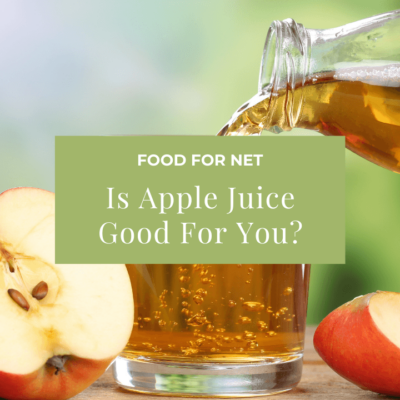



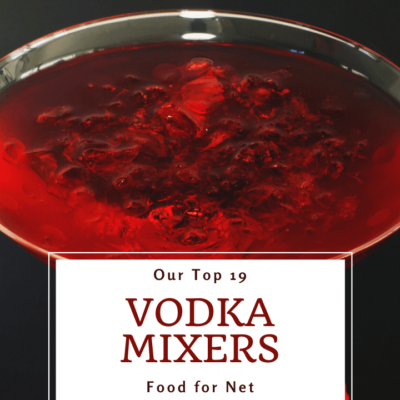











 17 Best Vegetables to Roast Plus Tips on How to Nail Roasting
17 Best Vegetables to Roast Plus Tips on How to Nail Roasting
Leave a Reply